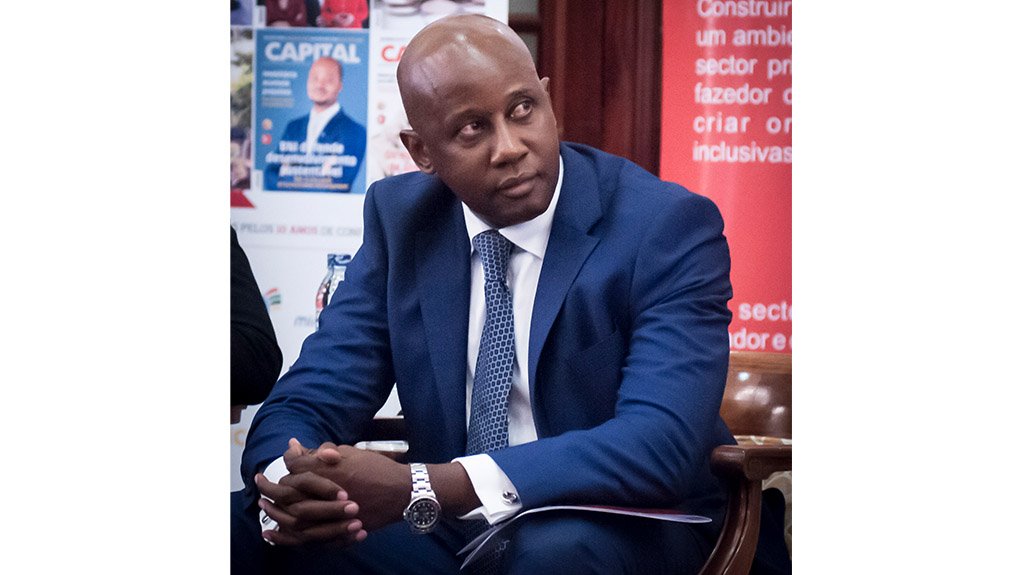With the current liquefied natural gas (LNG) projects under way in Mozambique, Mozambican Oil and Gas Chamber executive chairperson Florival Mucave notes that government needs to ensure that there are rules and regulations in place to encourage local participation.
Mozambique has a unique opportunity to drive its economic growth through the development of its natural resources. However, this will be successful only if it is beneficial to the local economy, in terms of facilitating goods and services, and job creation, he says.
“Only when the Mozambican government starts building domestic capability, promoting an enabling environment for investors and adopting best industry practices can the country succeed in becoming the energy frontier it aspires to.”
As such, the African Energy Chamber and the Mozambican Oil and Gas Chamber signed a cooperation agreement in July 2020 to support the development of local content in Mozambique and spur the attraction of investment into key segments of the country’s energy industry.
However, it is also important to note that local-content legislation often seeks to artificially increase levels of local participation in the industry beyond the levels that local capacity is currently able to meet, warns Mucave.
“One of the barriers to contracting national companies in projects related to natural gas has to do with the lack of certification in matters of quality and, in some cases, technical and financial capacity.”
However, this is where the Mozambican Oil and Gas Chamber can play a role, says Mucave.
The chamber intends to support national companies and providers of goods and services in the oil and gas industry in obtaining the necessary certification from global standards body the International Organisation for Standardisation.
The chamber was established in January 2020 with a mandate to build industry networks and support national companies, largely by providing training, certification, knowledge transfer and technology.
“The chamber will foster relations between members and their counterparts, national or foreign public or private institutions, as well as develop a platform of companies providing goods and services.”
Mucave adds that it hopes to also create an oil and gas sector specialist knowledge centre, focused on training, knowledge transfer and technology.
However, he stresses that it is important for local-content legislation to remain investor-friendly: “Mozambique’s natural gas is a resource that can support massive growth in our economy and has already successfully brought global investment into our country”.
Unlocking Continent’s Gas Potential
Mucave says developments such as the Regional Gas Master Plan (RGMP) are important to unlock the potential of gas in Southern Africa. The plan aims to ensure the inclusion and promotion of natural gas into the regional energy mix, which is currently dominated by coal.
The development of the RGMP followed the directive of the thirty-seventh Summit of Southern African Development Community (SADC) Heads of State and Government, held in August 2017 in Pretoria, South Africa.
The directive asked that the SADC Secretariat develop the RGMP and ensure the inclusion and promotion of natural gas into the regional energy mix, as well as further facilitate and increase universal access to energy and industrial development.
Additionally, the SADC Secretariat presented key outcomes and recommendations of a report on the RGMP Phase I through a webinar in August last year.
The webinar was held to sensitise the business community, private sector, financial institutions and international cooperating partners on the key outcomes and recommendations of the master plan.
It was hosted in collaboration with the Development Bank of Southern Africa, the New Partnership for Africa's Development Business Foundation, the SADC Business Council and the SADC Development Finance Resource Centre (DFRC).
During the webinar, the SADC explained that Phase I of the master plan was expected to provide a strategic framework and blueprint to take advantage of available opportunities that arise from the discovery of commercially exploitable quantities of gas in the SADC region.
The Phase I study maps the natural gas supply profile, as well as the associated costs, to convey the gas to targeted markets within the SADC, elsewhere on the continent and internationally.
The report that came under scrutiny during the webinar also considered the trends in and outlook for the natural gas industry globally and how these could impact on the master plan. It also compiled a database of relevant reports and studies about natural gas resources in the region and provided an assessment of the natural gas value chains and networks.
The report further unpacks challenges that must be addressed to build a robust gas economy in the SADC region and considers the potential contribution of the natural gas sector towards the achievements of the Regional Indicative Strategic Development Plan, the SADC Industrial Development Strategy and Roadmap, the African Union Agenda 2063 and the United Nations Sustainable Development Goals.
In his closing remarks, the SADC DFRC public-private partnerships head Kogan Pillay highlighted that natural gas has been one of the primary sources of energy in developed countries such as Canada for decades and, as such, it is prime time to develop regional gas markets.
Edited by: Nadine James
Features Deputy Editor
EMAIL THIS ARTICLE SAVE THIS ARTICLE
ARTICLE ENQUIRY
To subscribe email subscriptions@creamermedia.co.za or click here
To advertise email advertising@creamermedia.co.za or click here













